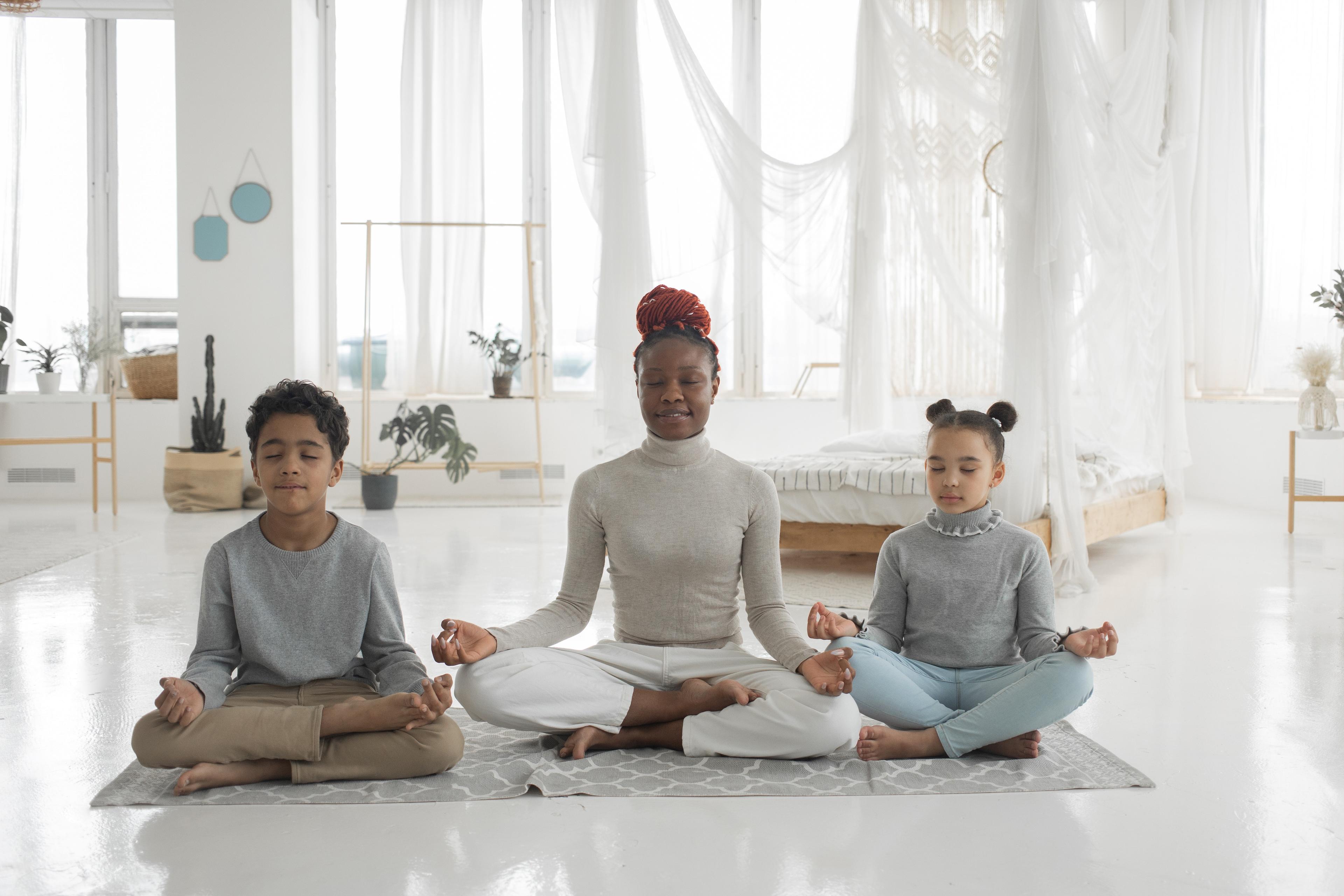- Home
- »Articles
- »Wellness
- »Meditation
- »Top 5 Meditation Benefits for Children



Top 5 Meditation Benefits for Children
7 July 2023
Meditation has many benefits for children, just as it does for adults. It teaches them to focus in the moment. Meditation can promote emotional wellbeing, sleep and concentration. It gives them a skill with which to manage stress they can use throughout their lives. If you practise it with them, it can help you form a closer bond.
Helps children manage their emotions
By learning to control their breathing, children can find a place of calm and be less reactive. Meditation teaches them to pause and focus on their breathing. They can learn to accept and manage difficult emotions. It can even reduce the physiological effects of trauma. By practising on a daily basis, they develop the parts of the brain that are responsible for relaxation. They can use the exercises at any point in their day when they feel they need to get in touch with their inner calm.
Improved Behaviour
Regular meditation can improve children’s behaviour. It helps them gain control of their thoughts. As a result they can listen better. They pay more attention in class because they are not in turmoil. They develop greater empathy, becoming more aware of how their own behaviour affects others. They feel at peace rather than being overwhelmed by feelings of anger and frustration.
Increased attention span
Regular meditation helps children focus and improves their concentration. It equips children with the ability to return the mind to the present moment. This helps them academically because they can listen and pay attention better and are more likely to remember things. The exercises can be very short to begin with. Even ten breaths in through the nose and out through the mouth will help. You can build from there.
Boosts mental health
Meditation can reduce stress and anxiety. It gives children tools to cope with challenges and so can have a positive impact on their mental health for life. They learn that it is best to approach problems from a place of calm. If they can still their racing thoughts, solutions can come to mind. The fight or flight response comes with hormones like cortisol and adrenaline which it is possible to quell by exercising the relaxation response consistently. The result is improved self-esteem and a boost in confidence.
Better sleep
After a hectic day at school being bombarded with information, and after all the social interaction of the playground, meditation can be used to help children unwind at night and help them get a good night’s sleep. There are meditations specifically for bedtime featuring breathing techniques and stretching. Meditation stories help children transport their imaginations to a beach or a calm forest. They can listen to the sounds of the sea or rain. Other exercises are more active. Body scans help connect mind and body, easing tension and relaxing children physically preparing them for sleep. Deep breathing exercises also bring the mind to the present rather than being anxious about something that happened that day or might happen tomorrow. This means they sleep more deeply and for longer.
